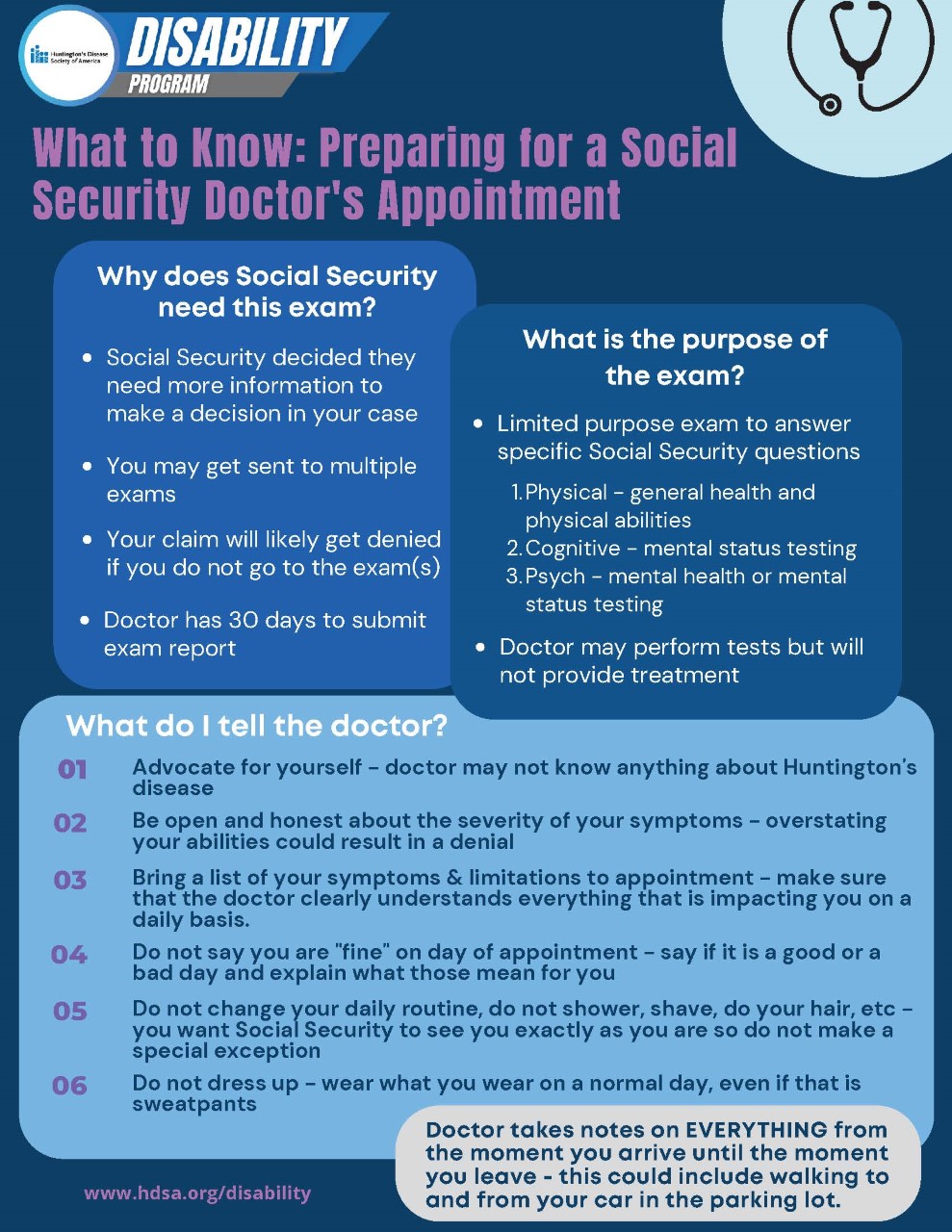Understanding Social Security Medical Appointments
During the Social Security disability process, it is very common for individuals with Huntington’s disease to be scheduled a Social Security medical appointment. Many assume that this is a bad sign for their disability case, but that is not true. When Social Security requests a medical appointment, it means that they do not feel comfortable making a disability decision and they want more information for the case – more information for a Social Security claim is not a bad thing. You do NEED to attend the appointment. Your disability case will likely be denied if you do not attend the medical appointment or provide any additional medical evidence to Social Security.
The appointment is a limited purpose exam and the Social Security doctor will only be asking questions about your HD, and any other conditions included in your application. Remember, the doctor may know much, or anything, about HD so be prepared to advocate for yourself and correct any misinformation.
Social Security medical appointments can be broken down into three categories:
1. Physical – SSA needs more information to better understand your physical condition(s) and limitations, like how long you can sit/stand/walk in an 8-hour day. This type of appointment tends to resemble an annual physical and lasts 30 – 60 minutes.
2. Cognitive/mental – SSA needs more information about your cognitive condition(s) and limitations, like memory and concentration. This type of appointment tends to include different cognitive tests and could take hours.
3. Psychiatric/behavioral – SSA needs more information about your behavioral health and limitations, like depression, anxiety, and trauma disorders. This type of appointment tends to include different behavioral/mental health testing, but it could also include cognitive testing. Depending on the type of tests performed, it could take a few hours.
You may be scheduled for just one of these appointments, or all of these appointments, it depends on the medical evidence collected from your doctors, which is why it is so important to include ALL of your doctors and treatment providers when completing the application. It is also important to know that you can request to be seen by your own doctor, instead of a Social Security physician, if you make the request as soon as possible. You can also ask Social Security what information they need for your case then share that information with your medical providers to help get additional medical evidence.
When the day comes for your Social Security medical appointment, it is VERY important to be as detailed and honest as possible about your symptoms and limitations. DO NOT DISMISS YOUR STRUGGLES AND LIMITATIONS – if you only tell Social Security what you can do, instead of what you cannot do, you will get denied. Also, have a friend or family member drive you to the appointment, and, if possible, attend the appointment with you, especially if you struggle with memory or have difficulty answering questions.
Look over the helpful handout below for additional tips and best practices:


